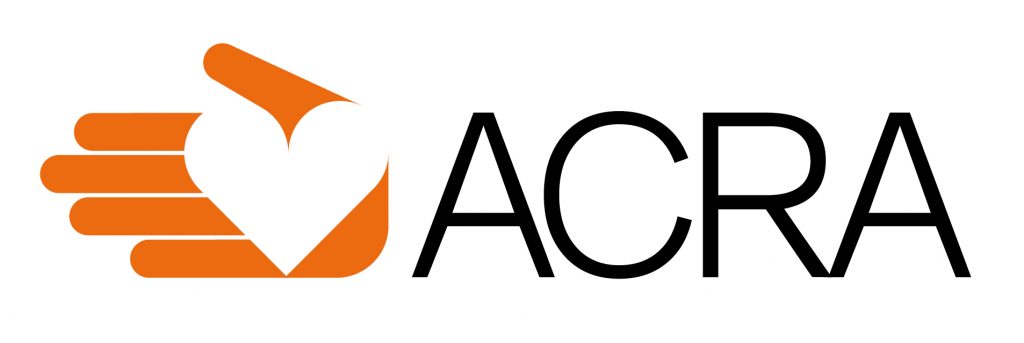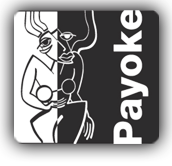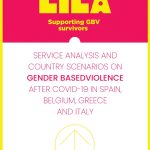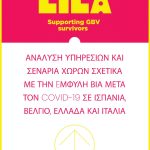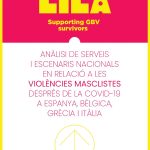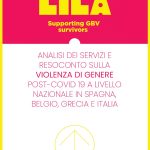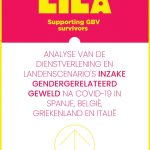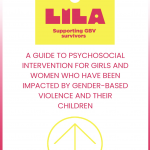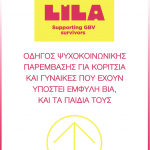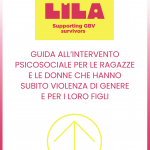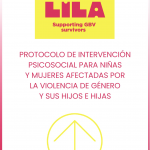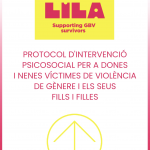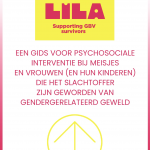LILA
Integrated one-stop support service aimed at women survivors of GBV and their children to tackle the needs arising from the Covid-19 crisis
International project funded by the European Union (CERV-2021-DAPHNE) from March 2022 to February 2024
Objectives
- Implement a pilot, based on a comprehensive and tailored psychosocial intervention aimed at providing full support addressed to girls and women victims of GBV and their children
- Contribute to the detection of victims’ emerging needs in the Covid-19 context
- Provide women with tools to increase their resilience, escape abusive relationships, (re)gain self-autonomy and prevent further violent relationships
- Strengthen survivor’s economic independence through training, job-searching support and empowerment
- Assess the impact of the pilot intervention in women’s wellbeing, competences and skills
- Raise awareness among EU citizens on the existence of GBV
- Foster and strengthen multi-agency cooperation to increase capacity of stakeholders and relevant professionals to provide support to survivors
Implementation
Research a) Service Analysis and Country Scenarios after Covid-19 b) Design the Pilot’s Psychosocial intervention Protocol 2
Engagement a) Creation/engagement of Country Clusters for pilot’s derivation channels b) Online Transnational Capacity Building for professionals
Piloting 4 pilots (Barcelona, Milan, Athens and Brussels) based on a comprehensive and tailored psychosocial intervention aimed at providing full support addressed to girls and women victims of GBV and their children
Evaluation a) Assess the impact of the pilot intervention in women’s wellbeing b) Assess the implementation process of intervention in terms of quality of the implementation in order to identify positives, negatives and improvements
Dissemination a) Raise awareness among EU citizenship on the existence of GBV b) Foster multi-agency cooperation to increase capacity of stakeholders and relevant professionals to provide support to survivors
Impact & Results
The expected impact of the project is:
Women GBV survivors: 80 to 200 women GBV survivors (victims of intimate partner violence with/without children; victims of human trafficking, minors victims of trafficking with a focus on minors victims of loverboy trafficking) will have access to the project. The pilot will prioritize the attention of women at risk of social exclusion, migrant and/or refugees
Consortium and stakeholders organizations staff: 100 professionals trained through the online CBT, who will be directly involved in the pilot will receive up to 20 hours of training in the paths defined in the pilot program, building on the expertise of the consortium organisations in the support intervention of GBV survivors
Stakeholders: 200 stakeholders involved and reached through the desk research and the pilot implementation, including CSO and public administrations. At least 20 stakeholders are interested in capitalize and scale-up the pilot
General Public: At least 500.000 EU citizens will be reached out through the awareness-raising campaign
Partners
ABD is a Spanish NGO, designated a public service by the government aimed at protecting the rights of people, as well as responding to the processes that generate situations of social exclusion. ABD was born in the 1980s, when a group of professionals and volunteers came together to face the increase of drug use and AIDS. Today, ABD’s social action is transversal, addressing situations such as physical and cognitive dependency, lack of basic resources, gender-based violence, child abuse, elderly care, migration issues, discrimination based on gender, ethnicity or origin, among others. Currently ABD is developing more than 180 national and international programmes, assisting more than 125,000 people annually with a team of more than 1,950 professionals and 650 volunteers.
Diotima Centre is a non-profit, non-governmental women’s organisation, established in 1989. Combating gender discriminations is our vision, preserving gender rights and empowering women and femininities is our mission. Support services to gender-based violence survivors through specialized legal and sociopsychological aid are at the core of our action. Moreover we carry out researches and provide gender-based violence trainings. Since 2016 we have extended our action to provide support to women, LGBTQI+ people, men survivors of sex and gender-based violence and tortures with refugee background.
ACRA is a non-governmental, secular and independent organization, founded in Milan in 1968. ACRA works along with local communities in Africa, Asia, and Latin America to ensure access to the rights of food, water, education, energy, and environment protection. Its goal is to support inclusive and long-term growth assisting local enterprises and talents. In Europe and Italy ACRA promotes a culture of peace, dialogue and integration, cultural exchange, and solidarity. It promotes educational activities for schools, agricultural models and sustainable consumption practices.
Payoke a pioneer in tackling trafficking since 1987, is one of the three government-recognized reception centers for victims of human trafficking in Belgium. The organization’s victim support program, lasting two to three years, is designed to help the person from the first stages of identification and accommodation, to the end of the judicial proceedings. Payoke also offers knowledge and resources to help government, civil society, communities and individuals recognize and prevent exploitation, inspiring action and helping prevent modern slavery. In 2018 Payoke has been appointed by the Flemish government referral center for all victims of trafficking through the loverboy modus operandi in the region.
RESULTS
Campaign
#ActNow
The LILA project presents the digital campaign #ActNow which runs simultaneously in Spain, Italy, Greece, and Belgium, in November 2023, on the occasion of the International Day for the Elimination of Gender-Based Violence. The campaign is launched in English, Spanish, Italian, Greek, Catalan and Dutch, on the social media of the LILA project partners ABD, ACRA, Diotima Centre and Payoke.
The videos, made by the creative agency Tripwire, portray daily-life situations that underscore a stark reality: certain forms of violence have become deeply ingrained within the very fabric of our society. Gender-based violence is structural and plays a significant role in perpetuating and reinforcing gender inequalities.
Despite its structural condition, everyone can actively contribute to its prevention and offer support to survivors. We must change our attitudes and behaviours, cultivate empathy and understanding, question gender roles and stereotypes that normalise gender-based violence, and advocate for a life free from violence and discrimination.
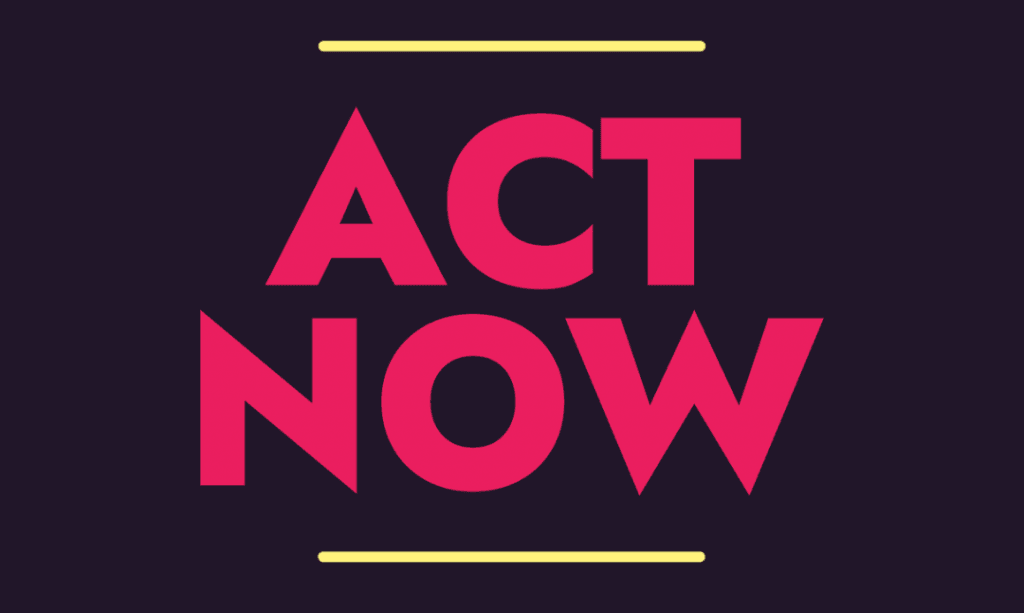
The first video displays the most prevailing form of sex trafficking involving girls and young women in Europe. A young pimp uses social media to attract and prey on a young girl to sexually exploit her. Our objective is to expose this method, reveal the pattern it follows, and provide support to potential victims and their environment. The second video sheds light on the double discrimination faced by migrant women, stemming from both their migratory background and documentation status, as well as their gender. It also reflects on the support available to them from both institutions and society, or the challenges to obtain it. In the third video, we overhear a phone conversation between two young men talking about the relationship of one of them. In what might seem like a typical conversation, one of the guys takes a stand and points out his friends’ violating and abusing behaviour, encouraging the audience to call out such actions when they occur.
Media kit
If you want to know more about the campaign, please find more information here.


